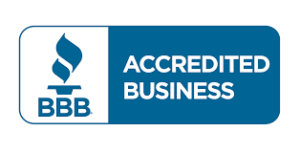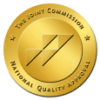If you are looking for a safe, medical path off benzodiazepines, you are in the right place. Our medical benzo detox in Tennessee offers round-the-clock care, enabling you to stabilize, rest, and think clearly as your body adjusts to withdrawal.
With 24-hour benzo detox in Tennessee, you are monitored by licensed clinicians who know benzo withdrawal inside and out. We build a taper that fits your history, watch your vitals, and keep you comfortable while we plan your next step in recovery.
Why choose our Tennessee benzo detox center
- True medical supervision with 24/7 nursing and provider oversight
- Customized tapers designed around your dose, duration, and co-meds
- Dual-diagnosis support for anxiety, insomnia, PTSD, and depression
- Small groups and a calm, boutique setting that respects your privacy
- Seamless step-down to residential, PHP, IOP, or outpatient care
Benzodiazepine withdrawal is different from other detoxes. It needs careful pacing, symptom-guided adjustments, and a team that knows how to manage risk while keeping you comfortable.
Whether you are stepping down from a short-acting benzo like Xanax or coming off a long-term prescription for clonazepam, our Tennessee team will meet you where you are and guide you safely to the other side.
What Is Benzodiazepine Detox and Who It’s For
Benzodiazepine detox is a medically supervised process that helps your body transition off medications like alprazolam or clonazepam in a safe, structured way. It typically includes three parts:
- Stabilization to reduce acute symptoms and assess risks such as seizure history, polydrug use, or severe insomnia.
- Taper planning that matches your current dose, how long you have been taking the medication, and whether you are on short- or long-acting agents.
- Withdrawal management with monitoring, symptom-targeted medications, sleep support, and gentle routines that re-train your nervous system.
The goal is safety and comfort, not white-knuckle suffering. In a medical setting, you can slow down enough to heal and prepare for the next steps in therapy. This is the foundation of Tennessee treatment for benzodiazepine dependence.

- Common medications involved
We see a range of benzodiazepines in detox. The most common are:
- Xanax (alprazolam)
- Ativan (lorazepam)
- Klonopin (clonazepam)
- Valium (diazepam)
Short-acting medications like Xanax tend to produce faster-onset withdrawal, while longer-acting agents like Valium may have a slower, drawn-out course. Our team takes these differences into account when planning your taper.
If you are detoxing from Xanax or Valium in Tennessee, you will receive a plan that reflects the specific medication you have been taking.
- Who benefits from medical benzo detox?
You might be a strong candidate for inpatient or closely monitored outpatient detox if you have:
- Long-term prescriptions or daily use
- High or escalating doses or frequent early refills
- Short-acting benzo use with interdose withdrawal or rebound anxiety
- Polydrug use, especially alcohol or opioids
- Tried and struggled with self-tapers or missed days
- History of seizures, complicated withdrawal, or severe insomnia
If any of these sound familiar, a medical benzo detox in Tennessee offers a safer, steadier path forward, with real-time adjustments as your symptoms change and a clear handoff to the right level of ongoing care.
Signs You May Need Medical Benzo Detox
Benzodiazepines change how your nervous system regulates stress, sleep, and arousal. Over time, your body adapts. What used to help can start causing daytime fog, rebound anxiety, and rough nights. If any of the signs below sound familiar, it is time to consider medical supervision for benzo detox in Tennessee so you can come off safely and with a plan.
Common signs it is time to get help.
- Tolerance
Your usual doses are less effective than they used to be, and you need more to achieve the same effect.
- Interdose withdrawal.
You feel shaky, wired, or anxious between doses, especially with short-acting meds like alprazolam.
- Rebound anxiety or insomnia.
Symptoms return stronger when a dose wears off or after a missed pill.
- Dose escalation.
You have increased your dose or take it earlier than prescribed to “take the edge off.”
- Doctor shopping.
You have more than one prescriber or use urgent care to bridge gaps.
- Mixing with alcohol or opioids.
You combine benzos with other depressants to sleep or calm down, which raises overdose risk.
- Failed self-tapers.
You have tried to cut down on your own and ended up back at the starting dose or higher.
- Withdrawal red flags.
You have a history of seizures, hallucinations, severe agitation, or dangerous sleep loss when reducing.
A medical detox is not only about comfort. It is about safety and stability while your team adjusts the plan as your symptoms change. In benzo withdrawal treatment in Tennessee, clinicians watch trends in sleep, blood pressure, and mood, and make small, targeted adjustments. That helps prevent the boomerang effect, where symptoms spike and you feel forced to restart.
If you are unsure whether you meet the criteria for inpatient or closely monitored outpatient care, a brief assessment can clarify risk level, look at co-medications and alcohol use, and map your next step.
The right fit is the one that keeps you safe while giving you the best chance to succeed.
Why Medical, 24/7 Supervised Detox Matters
Stopping benzodiazepines without support can be unpredictable. The brain has adjusted to the medication, and a sudden drop can trigger a surge of symptoms that are hard to manage at home.
The most serious risks of unsupervised cessation include seizures, delirium, dangerous blood pressure spikes, severe insomnia, and suicidal ideation. Even when none of these occur, prolonged anxiety, panic, and sleep loss can spiral quickly and lead to unsafe choices.
A safe benzo detox in Tennessee provides structure that lowers these risks. Around-the-clock teams monitor vital signs, hydration, and sleep quality, and can respond promptly if any changes occur.
You get symptom-driven medications when appropriate, rather than guessing at home. The team follows safety protocols for seizure prevention and monitors for interactions if alcohol, opioids, or other substances are involved.
If mental health symptoms surface, co-occurring conditions are addressed in real time so you are not white-knuckling through panic or depression alone.
Here is what 24/7 support looks like in practice:
- Continuous monitoring. Regular checks of blood pressure, heart rate, temperature, and sleep patterns.
- Gradual, individualized tapering. Adjusted based on how you feel, not a rigid calendar.
- Rapid response. If symptoms intensify overnight, a provider can evaluate and modify the plan immediately.
- Integrated care. Access to therapy, coping skills, and planning for the next level of treatment so you leave with momentum.
- Family communication by consent. Clear updates and education for safe support at home.
A monitored environment also reduces the “I can’t sleep, I’ll just take more” cycle that derails home tapers. With 24-hour benzo detox in Tennessee, small course corrections happen early, which keeps you safer and more comfortable.
The result is steadier progress, fewer setbacks, and a clearer path into residential, PHP, IOP, or outpatient care. If your goal is to get off benzos and stay off, medical oversight is the most reliable way to start well.
Understanding Benzo Withdrawal
Benzodiazepines boost the effect of GABA, the brain’s primary calming neurotransmitter. With regular use, the nervous system adapts: GABA receptors can become less responsive, and excitatory systems rev up to maintain balance.
When you reduce or stop the medication, that balance swings the other way—less braking, more acceleration—which explains why anxiety, insomnia, and sensory sensitivity can surge.
Effective benzo withdrawal management in Tennessee accounts for this GABAergic adaptation and eases your system back toward equilibrium.
Not all benzos behave the same. Short-acting agents (e.g., alprazolam/Xanax, lorazepam/Ativan) enter and leave the system quickly, so symptoms can start sooner and fluctuate more between doses (“interdose withdrawal”).
Long-acting agents (e.g., clonazepam/Klonopin, diazepam/Valium) have a slower onset and a longer, gentler tail, but can still produce prolonged symptoms if the dose or duration was high.
Good benzo withdrawal treatment in Tennessee matches the plan to the specific medication, dose, and timeline you’ve been on.
It also helps to distinguish rebound from protracted symptoms:
- Rebound withdrawal: A short, sharp return of the original problem (e.g., anxiety/insomnia) soon after a dose is reduced or missed.
- Protracted withdrawal (PAWS): A longer phase of intermittent waves—sleep issues, anxiety spikes, sensory sensitivity—that gradually settle over weeks to months as the nervous system recalibrates.
Common withdrawal symptoms:
- Neurological: tremor, tingling, dizziness, headache, light/noise sensitivity
- Autonomic: sweating, palpitations, blood pressure swings, temperature intolerance
- Sleep: trouble falling or staying asleep, vivid dreams, non-restorative sleep
- Mood: anxiety, irritability, panic surges, low mood, emotional volatility
- Cognition: fog, slowed processing, concentration/memory problems
- GI: nausea, appetite changes, cramping, loose stools or constipation
- Musculoskeletal: muscle tension, aches, jaw tightness, restlessness
These symptoms don’t mean you’re doing something wrong—they’re signs that your system is rebalancing. In a medical setting, clinicians track patterns (such as sleep, vital signs, and mood), provide symptom-targeted support, and adjust taper steps based on your response.
That dynamic approach reduces spikes, shortens rough patches, and keeps you moving forward with safety and steadiness.
Benzodiazepine Withdrawal Timeline (Tennessee Guide)
Every detox is individual, but most people move through recognizable phases. Your dose, duration, specific medication, genetics, and co-occurring use (alcohol, opioids, stimulants) all influence timing and intensity. Here’s a practical overview to help you know what to expect during benzo detox in Tennessee and what’s normal to discuss with your care team.
Every detox is individual, but most people move through recognizable phases. Your dose, duration, specific medication, genetics, and co-occurring use (alcohol, opioids, stimulants) all influence timing and intensity. Here’s a practical overview to help you know what to expect during benzo detox in Tennessee and what’s normal to discuss with your care team.
| Phase | Short-Acting (e.g., Xanax, Ativan) | Long-Acting (e.g., Klonopin, Valium) | What You Might Notice |
|---|---|---|---|
| 0–72 hours | Onset often within 12–24 hours of reduction or last dose. | Onset typically 24–72 hours after reduction or last dose. | Rising anxiety, tremor, sensory sensitivity, early insomnia; “edgy” or wired-tired feeling. |
| Days 3–7 (Peak) | Peak intensity is common around days 3–5. | Peak may land around days 4–7. | Symptoms crest; seizure-risk window; blood pressure and heart rate can spike; mood swings and sleep disruption are common. |
| Weeks 2–4 | Gradual improvement with waves. | Similar pattern, sometimes more gradual. | Anxiety and autonomic symptoms start easing; sleep remains inconsistent; fatigue and cognitive fog linger. |
| 1–3 months (PAWS) | Intermittent “good day/rough day” cycles. | Same pattern, occasionally with a longer tail. | Lingering sensitivity to stress or caffeine, sleep variability, occasional anxiety spikes; overall trend is gradual improvement. |
Key notes for the Benzodiazepine withdrawal timeline in Tennessee:
- Individualized course: High doses, long duration, and short-acting meds can mean earlier onset and stronger peaks. Long-acting agents may start later but last longer overall.
- Polydrug use matters: Alcohol and opioids increase risk and can change the order of operations; medical teams may prioritize safety sequencing and additional monitoring.
- Taper speed is adjustable: If symptoms spike, clinicians often hold or micro-adjust steps rather than pushing through. That doesn’t “set you back”—it stabilizes your nervous system, allowing you to continue.
- Sleep lags behind: It’s common for sleep to improve more slowly than daytime symptoms. Structured routines, non-sedating sleep strategies, and steady light exposure help reset circadian cues.
- Expect waves: Progress isn’t linear. Small stressors (illness, travel, caffeine) can trigger temporary flares. The trend line is what matters—more stable days over time.
A medically guided plan in Tennessee focuses on comfort and safety at each stage. Early on, the priority is monitoring and seizure prevention, plus relief for anxiety, autonomic symptoms, and GI upset. As the peak passes, the plan shifts toward sleep rehabilitation, gentle activity, and coping skills to manage waves.
By the PAWS phase, most people are sleeping better, thinking clearly, and ready to step down into residential, PHP, IOP, or outpatient care with a relapse-prevention roadmap.
Knowing the timeline helps you set expectations and reduces the urge to fix discomfort with quick, risky solutions. With a responsive team and a taper matched to your history, the process becomes manageable, allowing you to maintain the gains you’re making.
How to Detox from Benzos Safely in Tennessee
If you’re wondering how to detox from benzos safely in Tennessee, the short answer is: do it with a medical team, a plan that fits your history, and steady support. A benzo detox program in Tennessee typically follows a simple, protective arc: assessment → stabilization → individualized taper.
- Assessment
Your team reviews your full medication list, dose and duration of benzo use, prior taper attempts, co-occurring substances (alcohol, opioids, stimulants), sleep patterns, and medical and psychiatric history. Labs and vitals help identify immediate risks, such as dehydration, electrolyte imbalance, or blood pressure issues. This snapshot guides the first days of care.
- Stabilization
Early goals focus on comfort and safety. Clinicians monitor vital signs, sleep patterns, anxiety levels, and hydration status to ensure optimal well-being. If symptoms escalate, the plan adjusts in real-time. Stabilization also includes setting realistic expectations about the withdrawal timeline so you’re not blindsided by normal “waves” as your nervous system recalibrates.
- Individualized taper.
There’s no one-size schedule. Your taper speed is matched to your response. Some people do well with small, frequent reductions; others need more time between steps. The aim is steady progress without triggering big symptom surges that derail sleep or raise seizure risk.
- Cross-taper when appropriate (educational, not directive).
In some cases, teams cross-taper to a longer-acting benzodiazepine. Longer-acting agents can smooth interdose withdrawal and reduce daily swings, making small reductions more tolerable. This is a clinical judgment call based on your medication, dose, risks, and how you’ve tolerated previous changes. It is not a DIY strategy; it’s done under medical supervision with clear monitoring and checkpoints.
- Symptom-targeted supports.
Adjunct strategies keep you safer and more comfortable while the taper moves forward:
- Sleep and anxiety: non-sedating behavioral sleep strategies, relaxation training, and appropriate non-benzo medications when indicated.
- Autonomic stability: careful management of blood pressure and heart rate changes, hydration, and electrolyte balance.
- GI comfort: nutrition support, gentle remedies for nausea or appetite shifts.
- Mood and coping: brief skills from CBT/DBT, grounding techniques, and scheduled check-ins to defuse panic spikes.
- Medical monitoring.
Continuous or frequent vital sign monitoring catches early signs of trouble, allowing for small course corrections to happen quickly. Hydration and nutrition matter more than most people realize; consistent fluid intake, balanced meals, and gentle movement can help reduce symptom intensity and promote normal sleep patterns.
- Trauma-informed support.
Many people taking benzos live with anxiety, panic, or trauma symptoms. Staff should approach care with sensitivity to triggers, offer choices, explain every step before it happens, and avoid surprises. That sense of control lowers stress and makes tapering easier to tolerate.
- Sleep hygiene and light exposure.
Benzos affect sleep architecture. Rebuilding healthy sleep habits starts early: consistent wake times, morning light exposure, limiting caffeine late in the day, calming pre-bed routines, and keeping devices out of the bedroom. Small habits compound over the taper and help shorten the “sleep lag” that often follows the acute phase.
- Bottom line:
safe benzo detox isn’t a test of willpower. It’s a collaborative, medically guided process that adjusts to your body. With the right team, your taper is calm, structured, and sustainable, and you leave with a plan for the next level of care.
Inpatient vs. Outpatient Benzo Detox in Tennessee
Both settings can work; the right fit depends on risk, support, and logistics. Here’s a quick comparison to help you choose between inpatient benzo detox in Tennessee and outpatient benzo detox in Tennessee at large.
| Feature | Inpatient (Tennessee) | Outpatient (Tennessee) |
|---|---|---|
| Monitoring | 24/7 nursing/provider oversight; rapid response if symptoms change. | Frequent check-ins (daily or several times weekly), with phone support between visits. |
| Best for | Higher-risk cases: high doses, short-acting meds with interdose withdrawal, polydrug use, seizure history, severe insomnia/anxiety, or failed home tapers. | Lower-risk profiles with stable doses, no seizure history, minimal polydrug use, reliable transportation, and stable home supports. |
| Stabilization speed | Typically faster due to continuous monitoring and immediate adjustments. | Can be steady but slower; requires strong adherence and quick reporting of changes. |
| Safety resources | On-site vitals, hydration/nutrition support, safety protocols, and immediate modification of the taper as needed. | Office-based monitoring, home routines for sleep and hydration, and an urgent escalation plan if symptoms spike. |
- How to decide
- Risk level. If you have a seizure history, use alcohol or opioids, take high or rapidly escalating doses, or have severe insomnia or panic, inpatient care is usually safer.
- Home supports. Outpatient works best when you have a quiet place to sleep, consistent transportation, someone who can check in on you, and the ability to follow routines and communicate symptoms quickly.
- Distance and logistics. Living in Tennessee or your clinic increases the feasibility of frequent visits and urgent check-ins. Long drives can add stress during a taper.
- Work and family duties. If you must remain at home, outpatient care is appropriate only when risks are low and support is strong. If symptoms tend to spiral, short inpatient stabilization may still be the fastest way back to normal life.
- History of failed self-tapers. If multiple attempts have stalled or bounced back, inpatient can break the cycle with hands-on monitoring and immediate adjustments.
If you’re searching for a benzo detox facility near me, start with a brief clinical assessment. A good program will match you with the safest, lowest-burden option, explain why, and map a clear handoff to the next level of care, ensuring your progress continues after detox.
What to Expect Day-by-Day at a Tennessee Benzo Detox Center
If you’re wondering what to expect during benzo detox in Tennessee, here’s a clear, realistic walk-through of the first week. Every plan is individualized, but most people follow a similar arc from intake to stabilization with steady support at a trusted Tennessee Benzo Detox Center.
Day 1 — Intake & Stabilization Start
You’ll meet with a nurse and a provider for a full intake. This includes labs and vitals, a medication history, and a detailed review of current prescriptions and supplements (medication reconciliation).
Your team screens for seizure risk, polydrug use, and sleep disruption, then builds an initial safety plan and sleep plan. Expect orientation to the unit, a quiet room to settle in, hydration, and a first balanced meal, along with gentle coaching on what the next 24–48 hours might look like.
If you’re anxious about the first night, your team will outline supportive strategies and, when appropriate, consider symptom-targeted medications to help you rest without derailing the taper approach.
Days 2–4 — Trend, Adjust, Support
This window is about watching patterns and staying ahead of symptoms. Staff track vitals, sleep quality, and anxiety levels; if you’re on a taper or cross-taper plan, your provider makes small, data-driven adjustments.
You’ll receive regular nutrition and hydration support—simple, frequent meals and fluids go a long way in stabilizing the nervous system. Gentle movement (short walks, stretching, breathwork) is encouraged to reduce tension and improve sleep pressure later in the day.
You’ll also have brief therapy check-ins to practice grounding skills, reframe “wave and window” expectations, and plan for triggers.
This is when many people notice that the plan flexes with their body—if something spikes at 2 a.m., your team responds and recalibrates.
Days 5–7 — Stabilize & Plan Next Steps
As symptoms begin to even out, the focus shifts to stabilization and discharge planning. Your provider reviews what worked, what still needs support, and how to protect your sleep as you step down.
You’ll start with aftercare mapping, which includes residential or PHP for higher support, IOP or outpatient treatment if risks are lower, and psychiatry/therapy follow-ups.
You’ll leave with written routines (sleep/wake targets, nutrition basics, movement, coping skills) and “if-then” instructions for normal withdrawal waves. The aim is a clean handoff so your progress continues after detox.
Medication-Supported Benzo Detox
This section is educational, not medical advice. Protocols are always individualized by your clinical team based on your medication, dose, duration, risks, and response over time. In a medical benzo detox in Tennessee, medication strategies have one goal: safety with steady progress, paired with benzo withdrawal management in Tennessee that adapts to how you’re feeling.
Some plans cross-taper to a longer-acting benzodiazepine to smooth out interdose crashes and reduce daily swings. Longer half-life agents create a more stable baseline, allowing for smaller and more predictable reductions in blood pressure.
Cross-titration, when used, is carefully timed and monitored—doses are adjusted incrementally, with close attention to sleep patterns, vital signs, and mood. It’s not a DIY approach; it’s a clinical decision made to increase comfort and reduce risk.
Because abrupt or aggressive reductions can elevate seizure risk, teams emphasize gradual dose changes, close monitoring, and supportive measures.
If your history or current presentation indicates a higher risk, providers may incorporate additional safety measures, prioritize hydration and electrolyte replacement, and adjust the taper pace.
The theme is always the same: prevent spikes, protect sleep, and avoid sudden drops.
Adjuncts that may be considered
- Sleep: Non-sedating sleep strategies (consistent schedule, light management), cognitive behavioral tools for insomnia, and, when appropriate, non-benzodiazepine medications targeting sleep continuity.
- Autonomic symptoms: Support for heart rate and blood pressure variability; hydration, electrolyte balance, and gentle movement to regulate the system.
- GI comfort: Nausea and changes in appetite are common; nutrition planning and simple medications can help you maintain eating and recovery.
A slow taper isn’t about dragging things out—it’s about keeping your nervous system stable enough to keep going. Big cuts often lead to rebound anxiety, insomnia, or autonomic spikes that push people to reinstate.
Small, scheduled reductions with room to pause or micro-adjust lower seizure risk, protect sleep architecture, and maintain momentum.
In practice, that means you feel safer, you’re more comfortable, and you’re far more likely to complete the plan.
Medication-supported detox works best when it’s personalized and flexible, anchored by continuous feedback from your body. Your team sets the pace, you steer with real-time input, and together you move toward a benzodiazepine-free life—steadily, safely, and on solid ground.
Yes, Your Insurance Covers Detox and Rehab Treatment












When benzos are used with other substances, the risk profile changes, especially with central nervous system (CNS) depressants like alcohol and opioids. These combinations multiply sedation and respiratory depression, raising the chance of blackouts, accidents, and overdose.
If you’re seeking detox from benzos in Tennessee, the team will screen for alcohol and opioid use right away and adjust the plan to keep you safe.
Sequencing of care matters. If alcohol or opioids are in the mix, clinicians may prioritize medical steps that address withdrawal risk and seizure/respiratory safety in the right order.
That might mean stabilizing alcohol withdrawal risks first, or coordinating an opioid taper/transition that won’t destabilize the benzo plan. The goal is to prevent dangerous overlaps while still moving you forward.
After detox, MAT (medication-assisted treatment) can reduce relapse risk for some substances. For opioid use disorder, options like buprenorphine or methadone may be considered. For alcohol, naltrexone or acamprosate are common supports. MAT decisions are individualized and made with careful attention to your benzodiazepine history, sleep patterns, blood pressure, and mental health.
This is part of a comprehensive Tennessee treatment for benzodiazepine dependence that looks beyond the first week and maps a sustainable path.
Finally, overdose risk education is essential. You’ll learn how mixing benzos with alcohol or opioids increases danger even at “usual” doses, how tolerance resets after detox, and why carrying naloxone can save a life if opioids are involved.
You’ll leave with a concrete plan: safer pain and anxiety strategies, a relapse-prevention roadmap, and clear instructions about what to do—and who to call—if warning signs appear.
When polysubstance use is present, safety-first planning plus MAT and skills-based therapy dramatically improves outcomes.

Many clients arrive with anxiety, panic, PTSD, depression, or insomnia, and it’s not always obvious what belongs to withdrawal and what reflects a baseline condition.
Early on, your team will help you track patterns: for example, sleep and autonomic symptoms often flare during taper steps, while longstanding nightmares or trauma triggers may point to PTSD that also needs care. This clarity is the backbone of effective benzo withdrawal treatment in Tennessee—and it shapes a plan that treats the whole picture.
The approach is integrated from the very beginning. While providers manage tapering and medical safety, therapists begin psychoeducation so you understand “waves and windows,” sleep pressure, and nervous-system resets.
You’ll learn CBT for insomnia/anxiety skills—consistent wake time, light exposure, stimulus control, cognitive reframing—to rebuild sleep and reduce daytime spikes without reaching for fast fixes. DBT skills (distress tolerance, emotion regulation, interpersonal effectiveness) help you navigate urges, conflict, and sensory sensitivity while your system recalibrates.
Motivation matters, too. Motivational Interviewing (MI) helps you align detox and therapy with your actual goals—better sleep, stable mood, more presence with family—so the plan feels like yours, not something happening to you.
As symptoms settle, you’ll start relapse-prevention planning: mapping triggers (caffeine, conflict, late nights), building “if-then” responses, and coordinating with psychiatry for non-benzo strategies to manage anxiety or PTSD. If benzo effects have overshadowed depression, your team may revisit options after sleep and cognition improve.
Throughout, your providers differentiate temporary withdrawal effects from treatable conditions that persist after stabilization.
That’s how Tennessee treatment for benzodiazepine dependence stays effective long term: you leave with more than a completed taper—you go with working tools, a therapy plan that fits your life, and coordinated follow-up (residential, PHP, IOP, or outpatient) to keep momentum.
The result is fewer setbacks, clearer thinking, better sleep, and a practical path to living well without benzodiazepines.

Detox is easier to face in a space that feels calm, private, and restorative. Our Luxury benzo detox in Tennessee, combines medical oversight with a boutique environment designed to lower stimulation and help you rest.
Rooms are quiet and comfortable, with space to decompress between check-ins. Chef-prepared meals make it simple to stay nourished when appetite is inconsistent, and hydration is encouraged throughout the day, allowing your nervous system to settle.
Small groups keep the pace manageable and allow more 1:1 access to your provider and therapist. When you’re ready, gentle wellness options such as light movement, guided breathing, outdoor time, or simple mindfulness practices help reset sleep pressure and reduce muscle tension.
The goal is not to keep you busy, but to provide you with just enough structure to feel supported without feeling overwhelmed.
Being centrally located near Music Row means access is discreet and convenient for families arranging transportation or visits by consent. Inside, the vibe stays unhurried: soft lighting, low-noise common areas, and predictable routines that make each day feel more normal.
You’ll always know what’s next, who is checking on you, and how to reach staff if symptoms shift overnight.
If you’re comparing programs and wondering about the best benzodiazepine detox centers in Tennessee, look for this combination: 24/7 medical supervision, individualized tapering, trauma-informed care, and an environment that prioritizes sleep and privacy.
That’s the blend that makes detox feel safe, humane, and sustainable, so you can move forward with confidence.

Support works best when everyone understands the plan and their role in it. With your written consent, we can provide brief updates to a designated family member or support person.
You choose what’s shared, how often, and by what method (phone, text, or email). If your preferences change, updates can be paused or revised at any time.
Early in care, we establish healthy boundaries that maintain a calm environment: quiet hours, limited phone time when necessary for sleep, and scheduled call windows to reduce stress. Families receive education on safe support at home—sleep-friendly routines, nutrition basics, and how to respond to common withdrawal “waves” without panic.
We also review relapse warning signs (sleep collapse, escalating anxiety, mixing substances) and create a simple plan for what to do if they appear.
Most importantly, we clarify roles. Your team handles medical decisions and taper adjustments. Loved ones focus on encouragement, practical help (such as meals, rides, or a quiet place to rest), and consistency. This clarity prevents mixed messages and keeps everyone rowing in the same direction.
When you step down from detox, we can host a brief transition call (with consent) to review aftercare, appointments, and what good support looks like over the next few weeks. The aim is steady progress—less guesswork for your family, fewer bumps for you, and a shared understanding of how to protect the gains you’ve made.
Detox is the starting line, not the finish. To keep your progress, we step you into the right level of care with the intensity that matches your risk and goals. At our Tennessee benzo detox center, your team develops a handoff plan before discharge, ensuring a seamless transition from stabilization to ongoing support.
For some, this means a brief stay in a residential or Partial Hospitalization Program (PHP); for others, Intensive Outpatient (IOP) or Outpatient (OP) is the ideal next step. If you’re seeking Outpatient benzo detox in Tennessee, we’ll outline a bridge into IOP/OP with frequent check-ins, skills work, and medication management so you remain supported as symptoms taper down.
Therapy intensity scales with need.
- Residential/PHP (most structure): daily groups, multiple 1:1 sessions weekly, medical/psychiatry oversight, and curated routines that protect sleep and reduce stressors.
- IOP (moderate structure): several sessions per week focused on CBT for anxiety/insomnia, DBT skills, relapse-prevention, and trauma-informed support.
- OP (light structure): weekly therapy plus medication management and accountability check-ins.
Because sleep often lags behind other symptoms, we continue sleep rehabilitation, which includes consistent wake times, morning light exposure, device boundaries, and brief behavioral strategies to maintain predictable nights.
Medication management follow-up ensures non-benzo options are calibrated as your nervous system stabilizes. If you need primary care or psychiatry services in the community, we coordinate those appointments and share (with your consent) concise treatment summaries, ensuring everyone is aligned.
You’ll also plug into community supports—peer groups, recovery meetings, family education, and alumni check-ins. These are practical anchors for the “waves and windows” that can still occur in the first months.
Getting started should feel simple. Our team can verify your insurance benefits in minutes and explain, in plain language, what’s covered and what isn’t.
Many plans include detox, residential, and step-down levels like PHP/IOP; we’ll review deductibles, copays, and any pre-authorization requirements so there are no surprises.
A dedicated financial counselor can discuss payment options, help with paperwork, and coordinate start dates that work for you and your family.
What to bring: a list of current medications, photo ID, insurance card, comfortable clothing, essential toiletries (fragrance-free preferred), and a short contact list for approved communication. We’ll outline travel/logistics, including discreet arrival, parking details, and what happens during your first hour on site.
If you’re searching for “Benzo detox Tennessee” or a “benzo detox facility near me,” the next step is a brief phone assessment. We’ll ask about dose/duration, prior tapers, other substances, seizure history, medical conditions, and sleep.
From there, we’ll recommend inpatient or closely monitored outpatient and map the handoff to PHP/IOP/OP so your care is continuous.
Clear information, fast answers, and a concrete plan—that’s how we remove barriers and help you start safely.
Your information and your recovery are protected. We follow HIPAA-aligned privacy practices, use secure systems for health records, and share updates only with your written consent. You control communication preferences—who we contact, how often, and by what method—and you can change or revoke releases at any time.
If you need employer-safe documentation, we can provide concise notes that protect your privacy while meeting HR or leave requirements.
Inside the program, safety protocols guide medication handling, vital monitoring, and crisis response. Outside, we send (with your consent) focused summaries to your follow-up providers, ensuring care stays coordinated without oversharing.
Discretion, choice, and clear boundaries are built into every step, allowing you to focus on getting well while knowing your privacy is respected.
Start Safe Benzo Detox in Tennessee
You don’t have to white-knuckle this. Our medical, supervised benzo detox in Tennessee is built around your safety, comfort, and long-term plan, one step at a time. We tailor the taper to your individual history, monitor your vitals around the clock, and adjust quickly to keep symptoms manageable.
When you’re stable, we guide you into the right next level of care—residential, PHP, IOP, or outpatient—so progress continues without gaps. We also verify insurance and explain costs up front.
If you’ve been searching for benzo detox in Tennessee, or wondering how to start safely, this is your sign to take the first, supported step. A calmer week is possible—and from there, a clear path forward.
FAQs About Benzo Detox in Tennessee
[1] Office of the Commissioner. (2025, September 25). FDA and Kratom. U.S. Food And Drug Administration. https://www.fda.gov/news-events/public-health-focus/fda-and-kratom
[2] Kratom. (2022, March 25). National Institute on Drug Abuse. https://nida.nih.gov/research-topics/kratom
[3] Striley, C. W., Hoeflich, C. C., Viegas, A. T., Berkowitz, L. A., Matthews, E. G., Akin, L. P., Iheanyi-Okeahialam, C., Mansoor, U., & McCurdy, C. R. (2022). Health Effects Associated With Kratom (Mitragyna speciosa) and Polysubstance Use: A Narrative Review. Substance Abuse Research and Treatment, 16. https://doi.org/10.1177/11782218221095873
[4] Striley, C. W., Hoeflich, C. C., Viegas, A. T., Berkowitz, L. A., Matthews, E. G., Akin, L. P., Iheanyi-Okeahialam, C., Mansoor, U., & McCurdy, C. R. (2022b). Health Effects Associated With Kratom (Mitragyna speciosa) and Polysubstance Use: A Narrative Review. Substance Abuse Research and Treatment, 16. https://doi.org/10.1177/11782218221095873
[5] Smith, K. E., Sharma, A., Grundmann, O., & McCurdy, C. R. (2023). Kratom alkaloids: a blueprint? ACS Chemical Neuroscience, 14(2), 195–197. https://doi.org/10.1021/acschemneuro.2c00704
[6] Becker, D. E. (2012). Basic and Clinical Pharmacology of Autonomic Drugs. Anesthesia Progress, 59(4), 159–169. https://doi.org/10.2344/0003-3006-59.4.159

Medically Reviewed By:
Dr. Vahid Osman, M.D.
Board-Certified Psychiatrist and Addictionologist
Dr. Vahid Osman is a Board-Certified Psychiatrist and Addictionologist who has extensive experience in skillfully treating patients with mental illness, chemical dependency and developmental disorders. Dr. Osman has trained in Psychiatry in France and in Austin, Texas. Read more.

Clinically Reviewed By:
Josh Sprung, L.C.S.W.
Board Certified Clinical Social Worker
Joshua Sprung serves as a Clinical Reviewer at Tennessee Detox Center, bringing a wealth of expertise to ensure exceptional patient care. Read More
The Joint Commission – The Gold Seal of Approval® signifies that Tennessee Detox Center meets or exceeds rigorous performance standards in patient care, safety, and quality. It reflects a commitment to continuous improvement and clinical excellence.

LegitScript Certified – Confirms that Tennessee Detox Center operates in full compliance with laws and regulations, and meets high standards for transparency and accountability in addiction treatment marketing.

BBB Accredited – Demonstrates ethical business practices, commitment to customer satisfaction, and a trusted reputation within the community.
Psychology Today Verified – Indicates that Tennessee Detox Center is listed on Psychology Today, a trusted directory for verified mental health providers and treatment centers.
HIPAA Compliant – Ensures all patient health information (PHI) is protected and managed in accordance with strict federal privacy and data security standards.
ASAM Member – Tennessee Detox Center is a proud member of the American Society of Addiction Medicine (ASAM), reflecting a commitment to science-driven and evidence-based treatment standards.

Rutherford County Chamber of Commerce – Membership signifies active participation in the local community and support for regional growth and civic collaboration.
Get Family Support Now
Supporting Families Through Recovery
We understand addiction affects the whole family. Our comprehensive family program helps rebuild trust and restore relationships.
Weekly Family Therapy Sessions
Educational Workshops
Support Groups
Communication Skills Training


[1] Office of the Commissioner. (2025, September 25). FDA and Kratom. U.S. Food And Drug Administration. https://www.fda.gov/news-events/public-health-focus/fda-and-kratom
[2] Kratom. (2022, March 25). National Institute on Drug Abuse. https://nida.nih.gov/research-topics/kratom
[3] Striley, C. W., Hoeflich, C. C., Viegas, A. T., Berkowitz, L. A., Matthews, E. G., Akin, L. P., Iheanyi-Okeahialam, C., Mansoor, U., & McCurdy, C. R. (2022). Health Effects Associated With Kratom (Mitragyna speciosa) and Polysubstance Use: A Narrative Review. Substance Abuse Research and Treatment, 16. https://doi.org/10.1177/11782218221095873
[4] Striley, C. W., Hoeflich, C. C., Viegas, A. T., Berkowitz, L. A., Matthews, E. G., Akin, L. P., Iheanyi-Okeahialam, C., Mansoor, U., & McCurdy, C. R. (2022b). Health Effects Associated With Kratom (Mitragyna speciosa) and Polysubstance Use: A Narrative Review. Substance Abuse Research and Treatment, 16. https://doi.org/10.1177/11782218221095873
[5] Smith, K. E., Sharma, A., Grundmann, O., & McCurdy, C. R. (2023). Kratom alkaloids: a blueprint? ACS Chemical Neuroscience, 14(2), 195–197. https://doi.org/10.1021/acschemneuro.2c00704
[6] Becker, D. E. (2012). Basic and Clinical Pharmacology of Autonomic Drugs. Anesthesia Progress, 59(4), 159–169. https://doi.org/10.2344/0003-3006-59.4.159

Medically Reviewed By:
Dr. Vahid Osman, M.D.
Board-Certified Psychiatrist and Addictionologist
Dr. Vahid Osman is a Board-Certified Psychiatrist and Addictionologist who has extensive experience in skillfully treating patients with mental illness, chemical dependency and developmental disorders. Dr. Osman has trained in Psychiatry in France and in Austin, Texas. Read more.

Clinically Reviewed By:
Josh Sprung, L.C.S.W.
Board Certified Clinical Social Worker
Joshua Sprung serves as a Clinical Reviewer at Tennessee Detox Center, bringing a wealth of expertise to ensure exceptional patient care. Read More
The Joint Commission – The Gold Seal of Approval® signifies that Tennessee Detox Center meets or exceeds rigorous performance standards in patient care, safety, and quality. It reflects a commitment to continuous improvement and clinical excellence.

LegitScript Certified – Confirms that Tennessee Detox Center operates in full compliance with laws and regulations, and meets high standards for transparency and accountability in addiction treatment marketing.

BBB Accredited – Demonstrates ethical business practices, commitment to customer satisfaction, and a trusted reputation within the community.
Psychology Today Verified – Indicates that Tennessee Detox Center is listed on Psychology Today, a trusted directory for verified mental health providers and treatment centers.
HIPAA Compliant – Ensures all patient health information (PHI) is protected and managed in accordance with strict federal privacy and data security standards.
ASAM Member – Tennessee Detox Center is a proud member of the American Society of Addiction Medicine (ASAM), reflecting a commitment to science-driven and evidence-based treatment standards.

Rutherford County Chamber of Commerce – Membership signifies active participation in the local community and support for regional growth and civic collaboration.
Holistic Detox Services
Evidence-Based Treatment
Hear directly from those who have walked the path to recovery. Our patients’ stories highlight the compassionate care, effective programs, and life-changing support they’ve experienced. Let their journeys inspire you as you take your first steps toward healing.










Thank you all so much!




















The facility itself is clean, well-maintained, and equipped with all the necessary amenities to provide a serene and supportive environment.
What truly stands out is the personalized approach to care. The team developed a treatment plan tailored to my specific needs, incorporating both medical and holistic therapies. This comprehensive approach not only addressed my physical withdrawal symptoms but also supported my mental and emotional well-being.
The counselors and therapists offer a range of therapies that helped me understand the root causes of my addiction and develop effective coping strategies. Group therapy sessions provided a safe space to share experiences and gain insights from others on similar journeys.
Overall, my experience with this medical detox program was life-changing. The compassionate and skilled staff, combined with the personalized treatment approach, provided me with the foundation I needed for a successful recovery. I highly recommend this facility to anyone seeking a safe and supportive environment for detox and recovery.
But it's the people who make this place truly special. The staff, they've been there, they understand the struggle. No judgment, just support, encouragement, and a genuine desire to help you heal. They treated me like an old friend, even though I was just visiting for my buddy.
They've got a whole range of therapies to help you on your journey – individual counseling, group sessions, and even a fitness center to get you moving again. It's not just about detox. It's about rebuilding your life from the ground up.
My friend, the owner, he's living proof that this place works. He poured his heart into creating a haven for those seeking recovery, and his passion shines through in every detail.
So, if you're ready to take that first step, this is the place. Trust me, they'll walk beside you every step of the way.


